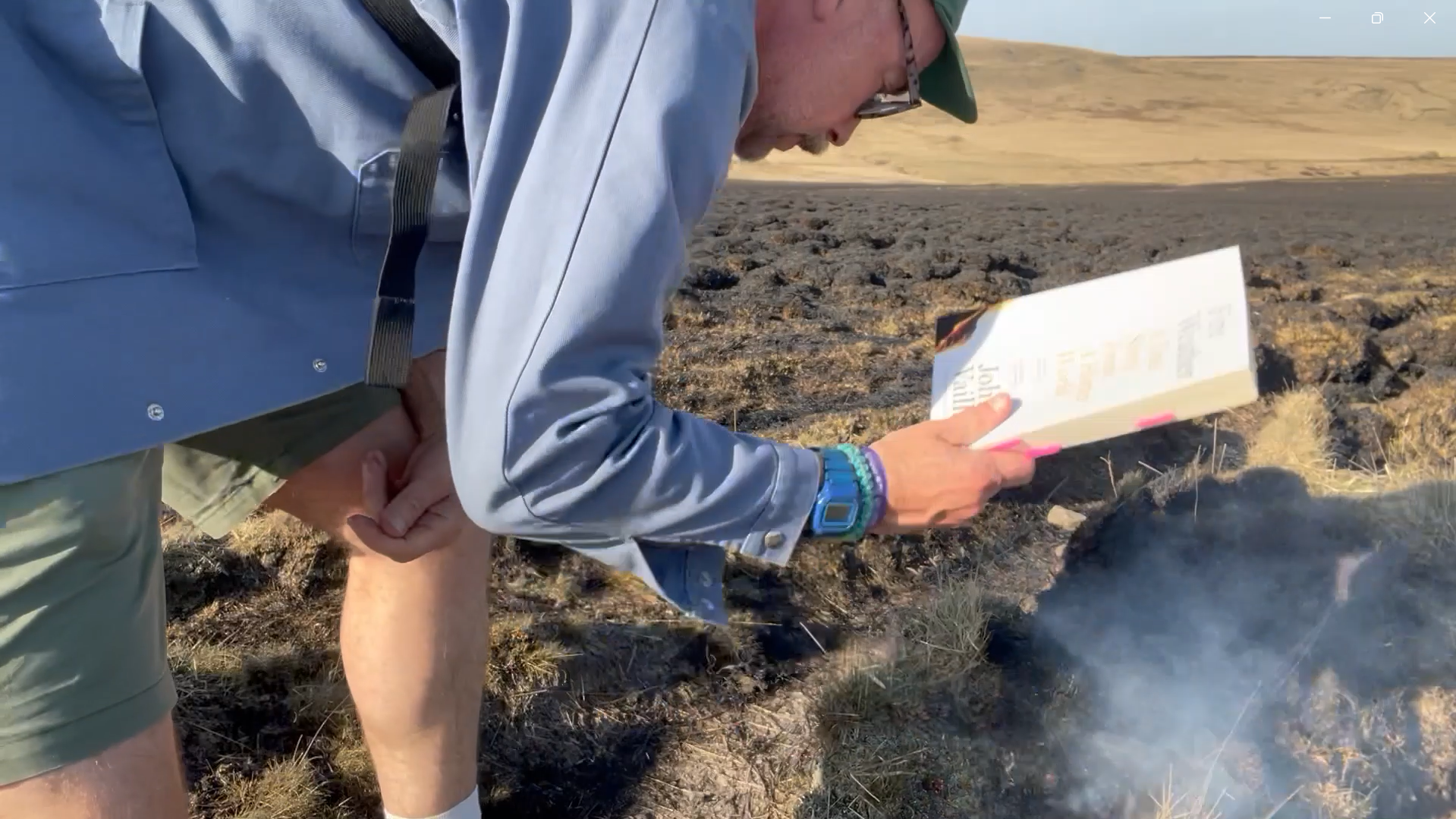I put out a wildfire with a book about wildfires!

Watching the recording back, you can see the flicker of hesitation as I question whether I really was going to use my copy of Fire Weather, John Vaillant's gripping account of a firestorm that destroyed the city at the heart of Canada's fossil fuel industry, to beat down the flames that had sprung up behind me.
I wish I could say I was marvelling at the ridiculously meta experience of using a book about wildfires to put out a wildfire.
But really, it was simply a stupid nostalgia about ruining the book that gave me pause.
 I had headed out to the Pennine moors above Marsden on an unseasonably warm April evening. Most of Scotland was under an extreme wildfire alert, and the moor itself had gone up in flames the previous evening, thanks to a bizarre meteorological handstand which saw Southern Europe drenched with record-breaking rain for weeks on end, whilst the North remained bone dry.
I had headed out to the Pennine moors above Marsden on an unseasonably warm April evening. Most of Scotland was under an extreme wildfire alert, and the moor itself had gone up in flames the previous evening, thanks to a bizarre meteorological handstand which saw Southern Europe drenched with record-breaking rain for weeks on end, whilst the North remained bone dry.

By the time I arrived the fire crews had left, and the blaze appeared extinguished. I went in search of a suitably burnt-out backdrop to record a reading and was spoilt for choice; the devastation extended in every direction.
Smouldering plumes still dotted the contours, and as I crested a rise, I spotted a smoking hag right next to the path. I sat down and set up alongside, saving the last of my water to dampen down after I'd finished, despite my parched throat.

The pages I was reading observe how conjouring fire is an everyday miracle we perform without even thinking, like the most blasé of wizards. As I reached the part where Vaillant ponders whether alien observers might imagine the Earth inhabited by a fire cult, with Canada's Fort McMurray and its hundred-foot gas flares as one of the most sacred sights, actual flames began licking my behind. As if the Fire Gods, themselves, were cursing my impertinence.
I did beat the flames down with the book. Fortunately, my review copy was a larger format than the published version; it worked a treat as a fire-beater.

I poured what remained of my water on the still-smouldering peat and attempted to stamp it out with my feet. No luck, just more clouds of smoke and dust. After resorting to excavating the largest chunk by hand and several trips to refill my water bottle from a nearby stream, I eventually brought the conflagration back under control.
Attempting to regain my composure, I returned to the book to share John's reflection about the enormity of this moment and offer my own hot take on how, when he talked about "the unregulated, hyper-consuming impulses of fire" he was talking about us too.

Because the Fire Gods are real, they are you and I.
We have the power, but despite a million years of evolution alongside fire, we haven't mastered the responsibility.
This is reconnection
This is why we read these books; this is what reconnecting with the rest of the natural world means. The illusion of separation from nature and our supposed dominion over it is just that: an illusion.
We are not separate, and we are not in control.
Revelations like this can shock those brought up by Western cultural stories, but they open up a new way of being in the world.
And let's face it; when supposedly waterlogged moorlands are disappearing in clouds of smoke and dust during what should be one of the wettest months, we need to find a new way of being here now.
__
To join our community of reconnected readers with a free copy of Fire Weather, or one of our previous books, visit The Library of Lost Connections
